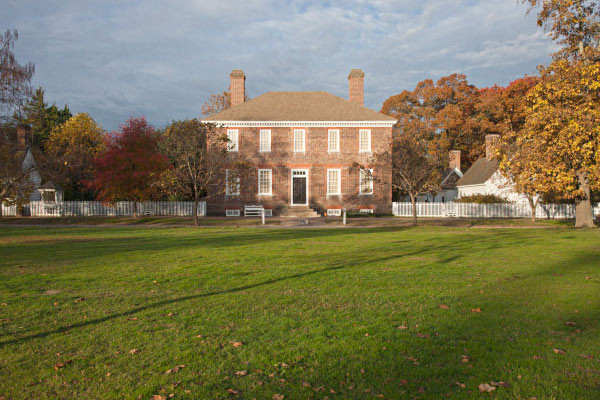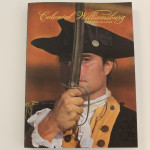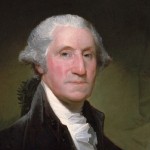With this month’s Fun Fact digging into the case of George Wythe’s likely murder, I read Bruce Chadwick’s “I Am Murdered: George Wythe, Thomas Jefferson, and the Killing That Shocked a New Nation.” Let’s talk about it.
I’ve had this book on my shelf for quite some time and just haven’t has a chance to pull it down from its place and get to reading. With the weather warming up and the pool open for business, I took the chance to soak up some Vitamin D and dive in…to the book, of course. As I noted in my Fun Fact blog, I love a good murder mystery. My grandmother got me hooked on Mary Higgins Clark books when I was a preteen and I’ve read every single one since. I live for murder mysteries forged in history, like the Lizzie Borden and Jack the Ripper cases.
My passion for history and mystery is what got me hooked on the story of Wythe’s death. Add that to my passion for books (especially about the American Revolution) and I knew I had to add this one to my collection.
I struggled with this book for a few reasons.
Chadwick’s book is an easy read and is about 250 pages long. I was able to read it in about three days of lounging by the pool. My biggest concern is that it’s really all over the place. There are many redundancies with names and facts as well as a lot of text dedicated to some of the players involved in the case that I didn’t think was very necessary. The long mentions of the history of slavery and the type of work available to freed people confused me. The book leads you to believe it’s about Wythe’s murder and the case against George Wythe Sweeney, but it seemed to me more like a long essay on life in Richmond in 1806 with a mention of Wythe’s death and how devastating it was to the people of Virginia.
There also wasn’t much about Thomas Jefferson aside from how he was a student of Wythe’s and the two formed a special relationship. Jefferson wasn’t able to make it to Richmond for the funeral as he didn’t even hear of his mentor’s death until it was too late. I think the name “Thomas Jefferson” was added to the book’s title to make it more appealing since Wythe isn’t really well known outside of Virginia.
Additionally, the trial itself didn’t get very much attention, which was very disappointing.
While I felt as if there was much lacking in this book, I did enjoy it as a look into the people involved in the case and what life was like in Richmond in the early 19th century. I wouldn’t recommend going into this book thinking it’s going to be a concise look at the case, but more of an overview. I would recommend reading the essay by Julian Boyd I mentioned in my Fun Fact blog. I’ve linked it there so you can take a look.
Overall I wouldn’t say I disliked this book. It’s an interesting read that didn’t come off as boring and haughty like a lot of nonfiction books can. It’s much easier to read than Washington’s Spies and your eyes won’t glaze over unless you get confused by the back and forth. If I had to give it a rating, I’d say it’s 3 out of 5 stars. If you’d like to read more reviews, click here.






Wythe Holt says
Chadwick’s book is awful. It is terribly written, makes claims that are utterly unsubstantiated, and gets off and stays off the track for pages upon end. IT is, as you say, “all over the place,” but also it is “in no good place” — people should not be encouraged to buy or read this execrable nonsense disguised as a well-researched story.